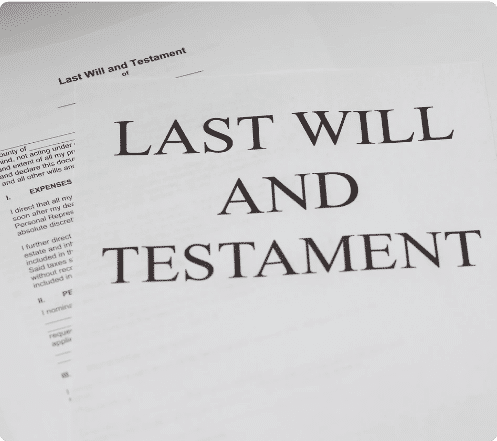Introduction to Letter of Testamentary
Letter of Testamentary is pivotal in understanding its significance in estate administration. Essentially, it serves as a legal document granting authority to an appointed executor to manage the affairs of a deceased individual’s estate. This authorization empowers the executor to fulfill various responsibilities, including asset distribution, debt settlement, and tax obligations. Understanding the process of obtaining a Letter of Testamentary and the roles of the executor is crucial for anyone involved in estate planning or administration. It forms the foundation for a smooth probate process and ensures the deceased’s wishes are carried out effectively.

Understanding the Legal Basis
Understanding the Legal Basis of a Letter of Testamentary is essential for navigating the probate process. This legal document is rooted in the probate laws governing the orderly distribution of assets upon an individual’s death. The issuance of a Letter of Testamentary marks the formal appointment of an executor, granting them authority to act on behalf of the deceased’s estate. It provides the legal framework for the executor to carry out their duties, including asset management and distribution according to the terms of the will. Familiarizing oneself with the legal basis of this document is crucial for ensuring compliance with probate regulations and facilitating a seamless estate administration process.
Probate Process Overview
The probate process is initiated upon an individual’s demise to ensure the orderly distribution of assets and resolution of debts. At the heart of this process lies the issuance of the Letter of Testamentary, which grants authority to the appointed executor.
Executor Appointment
The executor, typically nominated in the decedent’s will, is entrusted with the responsibility of executing the terms outlined in the will and overseeing the distribution of assets.
Importance of Authorization
The Importance of Authorization through a Letter of Testamentary cannot be overstated in estate matters. This legal document grants the appointed executor the authority to manage and administer the deceased individual’s estate. With this authorization, the executor can effectively handle tasks such as asset distribution, debt settlement, and tax obligations according to the decedent’s wishes. Without this document, the executor lacks the legal capacity to act on behalf of the estate, leading to potential complications and disputes among beneficiaries. Understanding the significance of this authorization ensures a smooth and efficient probate process, safeguarding the interests of all parties involved.
Managing Estate Affairs
The Letter of Testamentary bestows upon the executor the legal authority to act on behalf of the deceased individual, enabling them to settle debts, pay taxes, and distribute assets according to the will’s directives.
Distributing Assets
Without this authorization, the executor lacks the legal capacity to administer the estate, leading to potential complications and disputes among beneficiaries.

Who Can Obtain a Letter of Testamentary?
Obtaining a Letter of Testamentary is typically reserved for individuals designated as executors in the deceased’s will. These executors must meet certain legal criteria, including being of sound mind and not disqualified by law from serving in such a capacity. If no executor is named in the will or the named executor is unable or unwilling to serve, the court may appoint an administrator to handle the estate affairs. This individual must also meet eligibility requirements set forth by probate laws. Understanding who can obtain a Letter of Testamentary is crucial for ensuring a smooth probate process and proper estate administration.
Eligibility Criteria
To obtain a Letter of Testamentary, the designated executor must meet certain legal criteria, including being of sound mind and not disqualified by law from serving in such a capacity.
Executor Responsibilities
The executor assumes fiduciary duties to act in the best interests of the estate and its beneficiaries, adhering to the terms stipulated in the will and applicable laws.
Steps to Obtain a Letter of Testamentary
The process of obtaining a Letter of Testamentary involves several key steps. Firstly, the designated executor must file a petition with the probate court, providing essential documentation such as the deceased’s will and death certificate. The court then reviews the petition, ensuring it meets all legal requirements. Once approved, the court issues the Letter of Testamentary, granting the executor the authority to manage the estate. This document empowers the executor to carry out their duties, including asset distribution and debt settlement, in accordance with the decedent’s wishes. Understanding and following these steps is essential for a smooth and efficient probate process.
Filing Petition
The executor initiates the process by filing a petition with the probate court, providing necessary documentation such as the deceased’s will and death certificate.
Court Approval
Upon review of the petition and fulfillment of legal requirements, the court issues the Letter of Testamentary, granting the executor the authority to commence estate administration.

Role of Executor
The role of an executor in estate administration is pivotal. Acting as a fiduciary, the executor is entrusted with the responsibility of carrying out the deceased’s wishes as outlined in the will. This includes managing the estate’s assets, settling debts, and distributing inheritances to beneficiaries. Executors must navigate complex legal and financial matters with diligence and impartiality, always prioritizing the best interests of the estate and its heirs. Understanding the fiduciary duties and powers of an executor is crucial for ensuring the proper execution of the deceased’s estate plan and maintaining transparency throughout the probate process.
Fiduciary Duty
As a fiduciary, the executor must exercise diligence, prudence, and impartiality in fulfilling their duties, prioritizing the interests of the estate and its beneficiaries.
Executor Powers
The executor wields significant powers, including the ability to manage assets, settle debts, and make distribution decisions in accordance with the will’s provisions.
Limitations and Constraints
Limitations and constraints are inherent in the role of an executor and the probate process. While granted broad authority, executors must operate within the bounds of probate laws and court directives. Legal restrictions dictate the executor’s actions, ensuring compliance with procedural requirements and safeguarding the interests of beneficiaries. Additionally, court oversight is maintained to prevent abuse of power or negligence. Executors must adhere to these limitations and constraints diligently, prioritizing transparency and accountability throughout the estate administration process. Understanding and navigating these limitations is essential for ensuring a fair and lawful distribution of assets and liabilities according to the deceased’s wishes.
Legal Restrictions
While granted broad authority, the executor is bound by legal constraints and must adhere to probate laws and court directives throughout the administration process.
Court Oversight
The probate court maintains oversight over the executor’s actions, ensuring compliance with legal requirements and safeguarding the rights of beneficiaries.
Common Misconceptions
Common misconceptions often surround the role of executors in estate matters. One prevalent misunderstanding is the belief that executors have unrestricted control over estate assets, when in reality, they must adhere to legal and procedural requirements. Another misconception is equating executors with trustees, despite their distinct roles and responsibilities. Clarifying these misconceptions is crucial for understanding the executor’s fiduciary duties and the scope of their authority. By dispelling common myths, individuals involved in estate planning or administration can approach the process with a clearer understanding, ensuring compliance with legal obligations and promoting transparency throughout.
Misunderstandings about Executors
There are prevalent misconceptions regarding the role of executors, often leading to confusion about their duties and authority in estate administration.
Executor vs. Trustee
It’s essential to distinguish between an executor and a trustee, as their roles, responsibilities, and legal obligations vary significantly.

Benefits of Professional Assistance
Seeking professional assistance in estate matters offers numerous benefits. Legal guidance from experienced probate attorneys ensures compliance with complex laws and regulations, minimizing the risk of errors or disputes. These professionals provide expertise in navigating intricate probate processes, offering clarity and guidance at every step. Their assistance streamlines the administration process, saving time and reducing stress for executors and beneficiaries alike. Moreover, professional assistance can help mitigate potential conflicts and ensure the deceased’s wishes are upheld with integrity. By enlisting expert support, individuals can navigate estate administration with confidence, knowing they have competent guidance every step of the way.
Legal Guidance
Seeking professional legal assistance can provide clarity and guidance throughout the probate process, ensuring compliance with legal formalities and minimizing the risk of errors or disputes.
Expertise in Probate Matters
Experienced probate attorneys possess specialized knowledge and expertise in navigating the complexities of estate administration, facilitating a smoother and more efficient probate process.
Challenges and Pitfalls
Challenges and pitfalls abound in estate administration, requiring careful navigation by executors. Family disputes over inheritance or disagreements regarding the deceased’s intentions can complicate matters, necessitating delicate mediation. Complex estates with intricate asset portfolios or multiple beneficiaries pose additional challenges, demanding meticulous planning and execution. Moreover, legal intricacies and procedural requirements can be daunting, especially for those unfamiliar with probate laws. Executors must also contend with potential delays in the probate process, which can prolong resolution and increase costs. Understanding and addressing these challenges head-on is essential for ensuring a smooth and efficient estate administration process.
Family Disputes
Family conflicts and disagreements over estate matters can complicate the probate process, necessitating careful mediation and resolution to avoid protracted legal battles.
Complex Estates
Complex estates with intricate asset portfolios or multiple beneficiaries pose unique challenges, requiring meticulous planning and execution by the executor.

Conclusion
The Letter of Testamentary stands as a powerful instrument in estate administration, conferring authority upon the designated executor to fulfill their fiduciary duties and distribute assets in accordance with the decedent’s wishes. Understanding its implications and adhering to legal requirements are essential for ensuring a seamless Texas probate process.
FAQs
- What is a Letter of Testamentary?
- A Letter of Testamentary is a legal document issued by the probate court, granting authority to the designated executor to administer the estate of a deceased individual.
- Who can apply for a Letter of Testamentary?
- The executor named in the deceased’s will or, if no will exists, an administrator appointed by the court, can apply for a Letter of Testamentary.
- What are the responsibilities of an executor?
- Executors are responsible for managing the deceased’s estate, including settling debts, paying taxes, and distributing assets to beneficiaries as outlined in the will.
- Can multiple people be named as executors?
- Yes, it’s possible for multiple individuals to be named as co-executors, although this arrangement can potentially lead to complications and conflicts.
- How long does it take to obtain a Letter of Testamentary?
- The timeline for obtaining a Letter of Testamentary varies depending on factors such as the complexity of the estate and the efficiency of the probate court, but it typically takes several weeks to several months.












Leave a comment